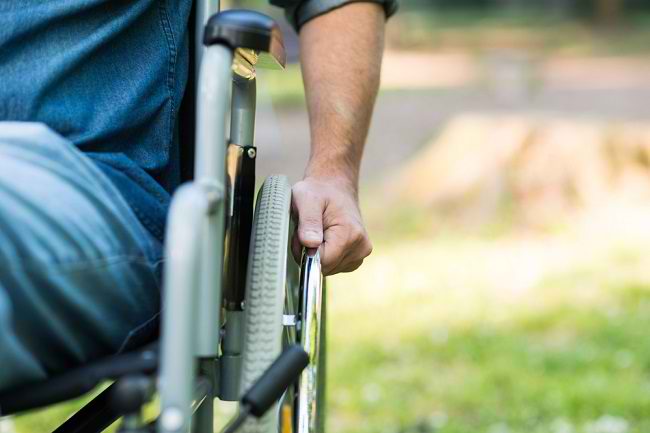Bortezomib is a drug used in the treatment of multiple myeloma and one type of lymph node cancer, namely mantle cell lymphoma. This drug is available in injectable form and can only be given by a doctor or medical officer under the supervision of a doctor.
Bortezomib is a proteasome inhibitor cancer drug.proteasome inhibitor). This drug works by blocking the role of the proteasome, resulting in disruption of protein metabolism in cells. This way of working then triggers the process of death of cancer cells.

Bortezamide trademark: Bormib, Bortecade 1, Bortecade 3.5, Bortero, Fonkozomib, Teoxib, Tezobell, Velcade
What is Bortezomib
| group | Prescription drugs |
| Category | Anticancer (proteasome inhibitor) |
| Benefit | Treat multiple myeloma and mantle cell lymphoma (mantle cell lymphoma) |
| Used by | Mature |
| Bortezomib for pregnant and lactating women | Category D: There is positive evidence of risks to the human fetus, but the benefits may outweigh the risks, for example in dealing with life-threatening situations. It is not known whether bortezomib is absorbed into breast milk or not. However, because of the potential for negative effects on a nursing infant, do not breastfeed an infant while using this medicine. |
| Drug form | Inject |
Precautions Before Using Bortezomib
Bortezomib will be given by a doctor or medical officer under the supervision of a doctor. There are several things you should know before undergoing treatment with bortezomib, namely:
- Tell your doctor about your history of allergies. Bortezomib should not be given to patients who are allergic to this drug, boron, or mannitol.
- Tell your doctor if you have or are currently suffering from peripheral nerve disease (peripheral neuropathy), liver disease, kidney disease, fluid deficiency (dehydration), heart disease, blood clotting disorders, blood disorders, diabetes, orthostatic hypotension, or infectious diseases.
- Tell your doctor if you are taking certain medications, supplements, or herbal products.
- Tell your doctor if you plan to have any vaccinations while taking bortezomib.
- Tell your doctor if you are taking bortezomib before having any surgery, including dental surgery.
- Use effective contraception to prevent pregnancy while on treatment with bortezomib, as this drug should not be used by women who are pregnant or who are planning a pregnancy.
- Do not breastfeed the baby during treatment until 2 months after the last treatment with bortezomib has been completed.
- Avoid direct contact with someone who is experiencing an infectious disease that is easily transmitted, because this drug can increase your risk of infection.
- Do not drive a vehicle, operate heavy machinery, or do anything requiring alertness after using bortezomib, as this medicine may cause dizziness.
- Do not consume alcoholic beverages while on treatment with bortezomib, as this can increase the risk of side effects.
- See your doctor right away if you have an allergic reaction, overdose, or serious side effects.
Bortezomib Dosage and Directions
The doctor will determine the dose of bortezomib according to the patient's condition and body surface area (LPT). In general, the following are the dosages for using bortezomib:
Condition: Multiple myeloma
- Dosage cycles 1–4:1.3 mg/m 2 The drug was administered twice a week on days 1, 4, 8, 11, 22, 25, 29, and 32.
- Cycle 5–9:1.3 mg/m 2 Administration of the drug is done once a week, namely on days 1, 8, 22, and 29.
- Dosage if multiple myeloma recurs: 1.3 mg/m 2 Administration of the drug is done 2 times a week on days 1, 4, 8, 11, followed by a rest period for 10 days. Treatment was extended to more than 8 cycles, given once a week, for 4 weeks (days 1, 8, 15, 22), followed by a rest period of 13 days (days 23 to 35).
Condition: Mantle cell lymphoma
- General dosage:1.3 mg/m2 LPT administered 2 times a week, for 2 weeks (on days 1, 4, 8, 11). This is followed by a rest period of 10 days (12 to 21 days). Treatment will be combined with rituximab, cyclophosphamide, doxorubicin, and prednisone.
- Dosage if lymphoma recurs: The general dose is repeated, then the treatment may be extended to more than 8 cycles given once a week, for 4 weeks (days 1, 8, 15, 22), followed by a rest period of 13 days (days 23 to 35). .
How to Use Bortezomib Correctly
Bortezomib will be given by a doctor or medical personnel on the doctor's instructions. This medicine will be given by injection into the skin or a vein. Always follow the advice and recommendations of your doctor while using bortezomib.
Before and after treatment with bortezomib, you may need to have a complete blood count, liver function tests, and kidney function tests. Increase the consumption of water while undergoing bortezomib treatment.
Bortezomib can cause dizziness or fainting if you get up too quickly from a lying position. To prevent this risk, get up slowly, then place your feet on the floor in a sitting position for a few minutes before standing up.
Bortezomib Interactions with Other Drugs
The following are some drug interactions that can occur if bortezomib is used with certain drugs:
- Increased risk of peripheral neuropathy when used with amiodarone, isoniazid, statin cholesterol drugs, nitrofurantoin, and antiviral drugs
- Increased risk of hypotension when used with antihypertensive drugs
- Decreased blood levels of bortezomib and its effectiveness when used with phenobarbital, apalutamide, carbamazepine, or enzalutamide
- Increased risk of serious infection if used with golimumab, adalimumab, baricitinib, fingolimod, certolozumab, bortezomib, or etanercept
- Decreased effectiveness of live vaccines, such as BCG vaccine or typhoid vaccine
- Decreased bone marrow function and white blood cell count when used with deferiprone or clozapine
Bortezomib Side Effects and Dangers
Side effects that may occur after using bortezomib are:
- The injection site is painful, red, bruised, bleeding or hard
- Nausea or vomiting
- Headache or dizziness
- Stomach pain and loss of appetite
- Constipation or diarrhea
- Sleep disturbance
- Flu symptoms
- Body feels tired
Call your doctor if the above side effects do not improve or get worse. Call your doctor right away if you have an allergic reaction to a drug or serious side effects, such as:
- Chest pain, shortness of breath, swelling in the legs or hands
- Severe headache, fainting, or confusion
- Easy bruising, bloody stools, pale skin, black vomit
- Peripheral neuropathy, which can be characterized by symptoms, such as tingling, numbness, pain, or burning in the hands or feet
- Infectious disease, which can be characterized by symptoms, such as fever, sore throat, chills, which do not get better
- Liver disease, which can be characterized by symptoms, such as jaundice, severe abdominal pain, or dark urine
- Tumor lysis syndrome, which can be characterized by symptoms such as back pain, painful urination, or infrequent urination









